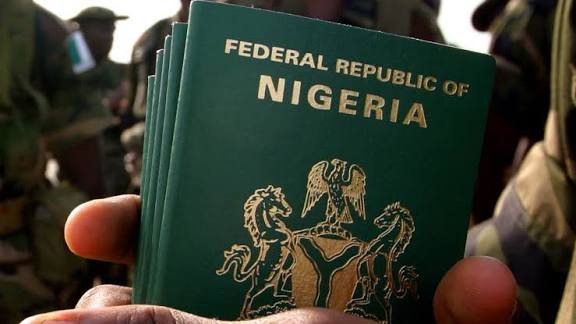EFCC Links ‘Yahoo Boys’ to Worsening Visa Restrictions for Nigerians Abroad
LAGOS, Nigeria – The Economic and Financial Crimes Commission (EFCC) has publicly acknowledged that the notorious activities of internet fraudsters, popularly known as “Yahoo Boys,” are significantly contributing to increasingly stringent visa restrictions imposed on Nigerian travelers by foreign nations. This admission, reported by Punch Nigeria, highlights the far-reaching consequences of cybercrime beyond direct financial losses.
The chairman of the EFCC, Ola Olukoyede, stated that the criminal actions of a minority are creating negative perceptions and damaging the reputation of legitimate Nigerian travelers and immigrants worldwide, resulting in heightened scrutiny, longer processing times, and higher rejection rates for visa applications.
The Scale of Nigeria’s Cybercrime Problem
Nigeria has long battled its international reputation as a hub for advanced fee fraud (commonly known as 419 scams) and other sophisticated cybercrimes. Despite concerted efforts by agencies like the EFCC, the persistence of these crimes continues to affect how Nigerian citizens are perceived globally.
According to a Reuters report, the EFCC has intensified its crackdown on cybercrime in recent years, making hundreds of arrests annually. However, the perception problem persists, often outweighing these enforcement efforts in the view of foreign immigration authorities.
Economic and Social Impact on legitimate Travelers
The tightening visa restrictions have tangible economic consequences for Nigerian businesses, students, and professionals seeking legitimate opportunities abroad. Many face extensive documentation requirements, extended processing periods, and increased scrutiny during interviews.
A Bloomberg analysis noted that the visa challenges come at significant economic cost, limiting educational opportunities, business expansion, and professional exchanges that could benefit Nigeria’s economy through knowledge transfer and remittances.
International Response and Travel Advisory Implications
Several countries have explicitly cited fraud concerns in their visa policies toward Nigerian applicants. The United Kingdom, Canada, and various European nations have implemented more rigorous verification processes for Nigerian applications compared to many other nationalities.
The U.S. State Department’s travel advisories have repeatedly highlighted criminal activities including cybercrime among their concerns for Nigeria, though primarily focused on risks to visitors rather than restrictions on Nigerians traveling abroad.
Broader Implications for Nigeria’s International Relations
This issue extends beyond individual travel inconveniences to affect diplomatic relations and international cooperation. The perception problem created by cybercriminals can influence foreign investment decisions, bilateral agreements, and Nigeria’s standing in international organizations.
As reported by Financial Times, the Nigerian government has increasingly recognized that addressing cybercrime is not just a law enforcement issue but a matter of national economic security and international reputation.
The EFCC’s Strategy and Challenges
The anti-graft agency has implemented various strategies to combat internet fraud, including public awareness campaigns, collaboration with international law enforcement agencies, and specialized cybercrime units. However, they face challenges including technological evolution, jurisdictional limitations, and the lucrative nature of these crimes for participants.
INTERPOL’s collaboration with Nigerian authorities has been crucial in addressing transnational cybercrime networks, but the problem requires sustained investment in both enforcement and preventive measures.
The Path Forward: Image Rehabilitation and Systemic Solutions
Addressing the visa restriction problem requires a multi-faceted approach that goes beyond law enforcement. Potential solutions include:
- Enhanced verification systems for official documents
- Public-private partnerships to improve document security
- International diplomacy to address perception issues
- Educational and economic opportunities to deter youth from cybercrime
- Streamlined legitimate visa processing for verified applicants
Conclusion: A National Challenge Requiring Coordinated Response
The EFCC’s acknowledgment of the connection between cybercrime and visa restrictions represents an important step in addressing this complex issue. Solving it will require coordinated efforts across government agencies, private sector engagement, and international cooperation to protect Nigeria’s global reputation and ensure that legitimate travelers are not penalized for the actions of criminals.
As Nigeria continues to position itself as Africa’s largest economy and an important global partner, addressing this perception problem becomes increasingly crucial for national development and international integration.


